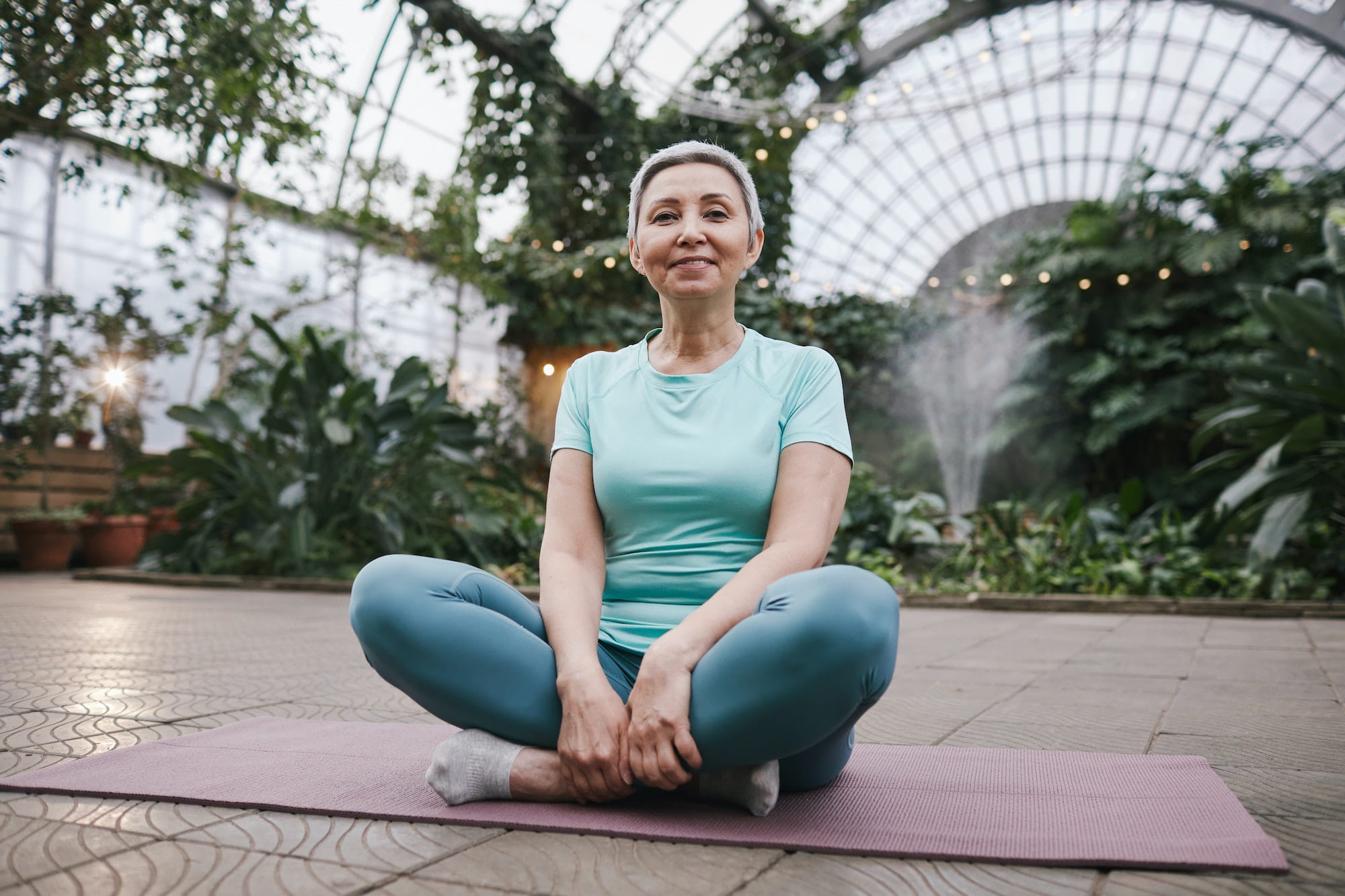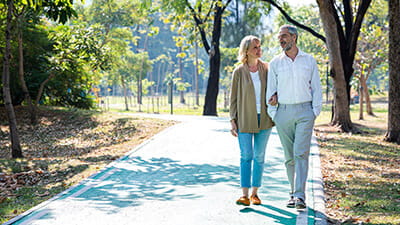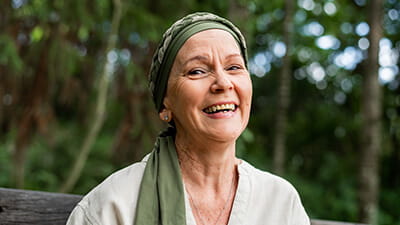

None of us know what the future truly holds, and as we get older, changes to our lifestyle can take us by surprise. From relationships to retirement, our sense of wellbeing can take a knock following foreseen (or unforeseen) changes. But for millions of Brits, ‘healthy ageing’ starts with discovering a new hobby.
What hobbies do we enjoy most in later life? We polled people aged 50-plus and crunched some existing data to explore the relationship between our hobbies and our health.
We discovered:
Millions of us spend much of our lives in the hustle and bustle of the modern world, whether we’re commuting on a train, stuck in traffic or shopping on the high street. So perhaps it’s no surprise that as we get older, some of us have a yearning for hobbies that bring us closer to nature.

Judging by our survey, almost half (49%) of us take to regular gardening when we hit 50. And while younger people are often associated with a concern for the natural world , it seems that we’re more likely to dig gardening as we get older. While 26% of UK adults as a whole cite gardening as a hobby, this rises to 47% among people aged 65-plus.
This passion for green-fingered pursuits was evident across the board – 51% of women and 47% of men chose ‘gardening’ as their top hobby, and regionally, you’re most likely to find people in the North East (61%), North West (52%) and Yorkshire & Humber (45%) outside with their trowels, shovels and pruners.
Among those who don’t consider gardening to be a bed of roses, there was still lots of love for getting out and about in the fresh air. In fact, those we spoke to aged 61-65 were most likely to cite ‘outdoor activities’ such as low intensity walking and sightseeing (49%) as their number one hobby.
It’s clear that outdoor hobbies are popular among people over 50, but is there more to this trend than meets the eye?
Our later years offer a chance to gain new perspectives, spend more time with our loved ones, and perhaps even travel the world. But it’s fair to say that not everyone experiences a ‘happily ever after’. According to Age UK, the number of people over 50 experiencing loneliness is set to reach 2 million by 2026 . And when you factor in circumstances that affect millions of older people – including retirement, bereavement and reduced mobility – it’s no surprise that our later years can sometimes leave us feeling blue.
While there’s no quick fix when it comes to alleviating mental health challenges, our survey suggests that pursuing a new hobby – and in particular, getting outdoors – can put a spring in our step.

Once again, our results suggest that as we get older, we see the value in getting out and about – whether it’s marvelling at breath-taking scenery or taking part in exercise.
Of those who participate in team sports and fitness, 99% told us that it’s beneficial for their mental health, and there was similar agreement among gardeners (97%), swimmers (95%) and birdwatchers (93%).
If there was one split in opinion, it was that men were most likely to say that keeping their brain active is the most helpful activity for their mental health (50%) while just 46% of women said the same. For women, spending time in nature was the top answer (57%) which was selected by just 42% of men.
Even if gardening or walking is not your thing, numerous studies have shown that hobbies can improve our mental health in a number of ways:
As we’ve covered, some of the best activities you can try include spending time in nature, physical exercise and doing your best to socialise. But every individual is different, so beyond the great outdoors, we wanted to explore all the different ways that we can protect our mental health in later life.
We dug into a wide range of sources to uncover our favourite hobbies, and the mental health benefits associated with these.

After decades of working hard, it’s no surprise that many people want to spread their wings in later life and travel the world. But what about the more unusual hobbies that we may not have considered? Here are some of the more unconventional past-times that could help reduce feelings of depression, anxiety and loneliness – and kick-start a new chapter in later life.

Similarly, in our survey we found a high level of enthusiasm for unique hobbies that are less than conventional – but no less fun. For example, more than a fifth (21%) of over 50s told us they regularly play board or card games, while almost one in ten (9%) are avid birdwatchers. What’s more, thrill seeking doesn’t always slow down in later life – 5% of people told us they regularly visit theme parks and attractions.
Whether it’s an activity you’ve always had a passing interest in, or something completely different, taking part in a hobby is a great way to meet new people, challenge yourself, and stay healthy in later life. Physical activities like walking and running can improve our sleep health, while shared interests – from crafts to cooking – can bring us closer to others and enhance our health and wellbeing. And given the average Briton has around three hobbies a week, according to Stannah – totalling 416 hours a year – there is fortunately plenty of time to meet new people, refine your skills and discover a new you.
It’s fair to say that few things are more integral to our wellbeing than how we look after our mind and body. We’re proud that Saga’s private medical insurance allows you to choose where you’re treated, access tests or scans more quickly, and have peace of mind in knowing that you can get early diagnosis and prompt treatment. Call us on 0330 094 6361 to find out more.
Saga Health Insurance is a unique product designed by us specifically for our customers and it is only available through us. Together with our underwriter, Bupa Insurance Limited, we are committed to providing high levels of quality, service and choice. That's why we offer a range of policies that can be tailored to suit your needs and budget.
Health insurance for people over 50 that provides a quicker route to diagnosis and planned medical treatment in a private hospital.


Get quicker diagnosis and treatment with nationwide private hospital options. There’s no upper age limit and you won’t need a medical.
There's plenty to explore and learn about our health insurance cover.

We explain the basics about getting health insurance so you could go private for medical treatment.

Looking for private health insurance? Read out handy guide to choosing a healthcare provider.

We offer a choice of four health plans, each providing cover for diagnosis and prompt hospital treatment.

From Norwich to Glasgow, Saga uncovers the UK’s most cycle-friendly cities, and the perspectives of different generations on cycling, all the way from Gen Z to those over 50 years old.

If you work for yourself, it really pays to stay healthy. See how health insurance could give you a speedy route to recovery if illness gets in the way of business.

Tailor and improve your Saga Health Insurance policy so you can have the cover that's right for you.

One of the main benefits of Saga Health Insurance is choosing where you're treated, from a range of private hospitals.

Want to know more? Here are the answers to the questions we're asked most often about our health insurance.

Our guide will help you understand whether your past medical conditions are covered when you take out a new health insurance policy.

Learn more about the three different underwriting methods in a Saga HealthPlan including Moratorium and Full Medical Underwriting.

Our glossary of health insurance terms explains the most commonly used words and phrases to make things as clear as possible.

The Saga GP Service offers unlimited access to telephone GP appointments – 24 hours a day, 365 days a year.

It's easy to switch your health insurance to Saga or set up a policy after a company scheme has ended.

Visit our membership handbook page for useful information on making a claim, including how and when to contact us.

Saga HealthPlans, Super, Secure and Saver Plus all provide the peace of mind that you have access to good, all-round cover for cancer every step of the way.

Quicker diagnosis and treatment, and nationwide private hospital options – it’s no wonder customers have chosen us to take care of their health for over 30 years. There’s no upper age limit and you won’t need a medical.